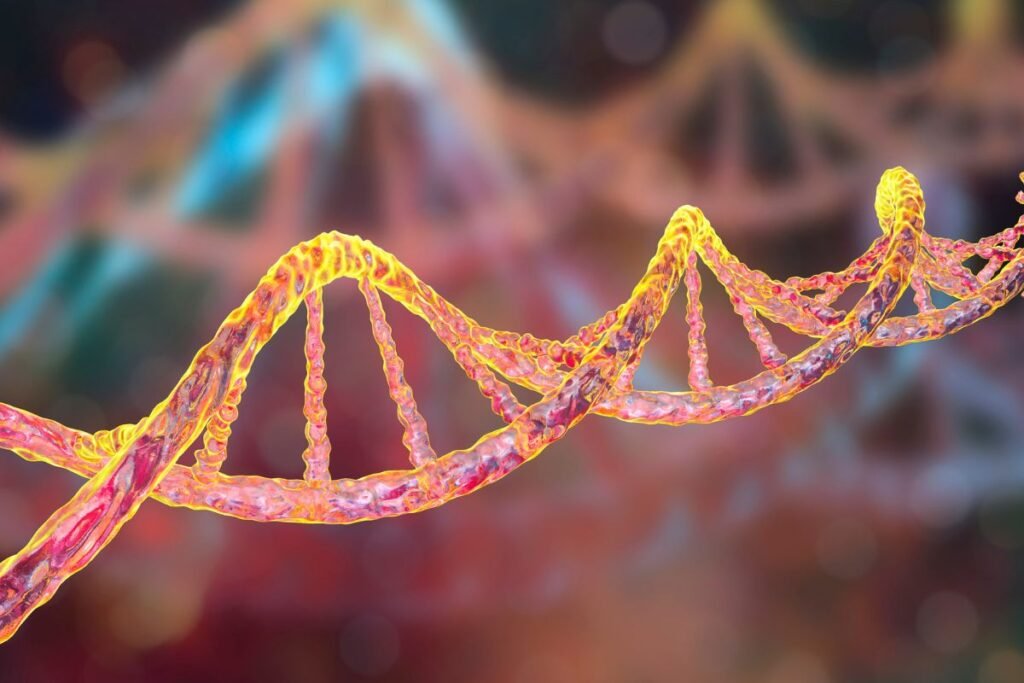Hirsutism is unwanted hair growth on the face, chest, and body. This is primarily caused by the increase in male hormones and certain medical conditions.
What Causes Hirsutism in Females:
The main causes of hirsutism are:
1. Polycystic Ovary Syndrome (PCOS):
PCOS is one of the main reasons for hirsutism. PCOS is due to hormonal imbalances. Normally, women produce small amounts of androgens (male hormones) that help in hair growth, muscle strength, and overall body functions. However, in PCOS, the ovaries produce more androgens than usual.
When the body produces too many androgens, it can trigger hair growth in areas where men typically grow thicker hair, like the face, chest, or back. This happens because androgens directly affect hair follicles, and cause them to produce darker, rougher hair.
In simple terms, androgens are a dial for hair growth. When the dial is turned up too high, it results in unwanted hair in places you don’t expect.
Also Read: What Is PCOS In Women?
2. Adrenal Gland Disorders:
Adrenal gland disorders can also cause hirsutism. The adrenal glands are small organs that are present on top of the kidneys, and they make important hormones like cortisol and androgens (male hormones).
Sometimes, these glands don’t work properly and produce too many androgens. When this happens, it can lead to unwanted hair growth in places like your face, chest, or back.
For example:
- Cushing’s Syndrome happens when the body produces too much cortisol (the stress hormone). This can increase androgens and cause hirsutism.
- Congenital Adrenal Hyperplasia (CAH) is a condition in which the adrenal glands produce too many male hormones, which cause excessive hair growth.

3. Medications:
Certain drugs can disrupt the hormones in the body and make hair follicles more sensitive to these hormones. This results in thicker and darker hairs. The common medications linked to hirsutism are:
a) Anabolic Steroids:
What they’re used for: These are sometimes taken illegally to build muscle or improve athletic performance.
How they cause hirsutism: They are similar to male hormones that can increase androgen levels, and cause unwanted hair growth.

b) Minoxidil:
What it’s for: This is a medication used to promote hair growth in people with hair loss.
How it causes hirsutism: It stimulates hair follicles, which can lead to excessive hair growth in unwanted areas.
c) Danazol:
What it’s for: This drug is used to treat endometriosis.
How it causes hirsutism: It has androgen-like effects, which can lead to increased facial and body hair.
d) Glucocorticoids (Long-Term Use):
What they’re for: These are used to treat conditions like asthma or inflammation.
How they cause hirsutism: Prolonged use may disrupt your hormonal balance, and can increase androgens.
4. Genetics:
Genes are like a set of instructions passed down from your family. Some families naturally have more body hair or are more sensitive to hormones.
If your mom, sister, or close relatives have hirsutism, there’s a higher chance you might have it too.

5. Idiopathic Hirsutism:
Sometimes, there’s no clear reason for the hair growth. This is called idiopathic hirsutism.
It could be due to how your body reacts to androgens or your ethnic background, as some women naturally have more body hair than others.
For example, women from Mediterranean, Middle Eastern, or South Asian backgrounds may naturally have more body hair compared to women from East Asian backgrounds, who tend to have less.
6. Insulin Resistance:
Insulin is a hormone that helps to control blood sugar. In insulin resistance, our cells do not respond properly to insulin, due to which insulin production increases and ultimately blood sugar increases.
Insulin resistance can cause ovaries to produce more androgens, and result in symptoms like hirsutism, weight gain, and acne.
7. Ovarian tumors:
Ovarian tumors can cause hirsutism, though they are a less common cause compared to conditions like PCOS. These tumors, specifically androgen-secreting ovarian tumors, can cause increased levels of androgens in the body, and result in male-pattern hair growth on areas like the face, chest, and back.
Frequently Asked Questions:
Which vitamin stops facial hair growth?
Vitamin D, magnesium, and zinc can help reduce facial hair growth.
Can a woman have hirsutism without PCOS?
Yes, a woman can have hirsutism without having PCOS.
Which hormone stops facial hair growth?
Estrogen is the hormone that helps stop or reduce facial hair growth. Estrogen works by balancing and opposing the effects of androgens (male hormones) like testosterone, which stimulate hair growth in male-pattern areas such as the face.
What cream stops facial hair growth?
A commonly used cream to slow or stop facial hair growth is eflornithine hydrochloride. It does not permanently remove hair but reduces its growth rate.

